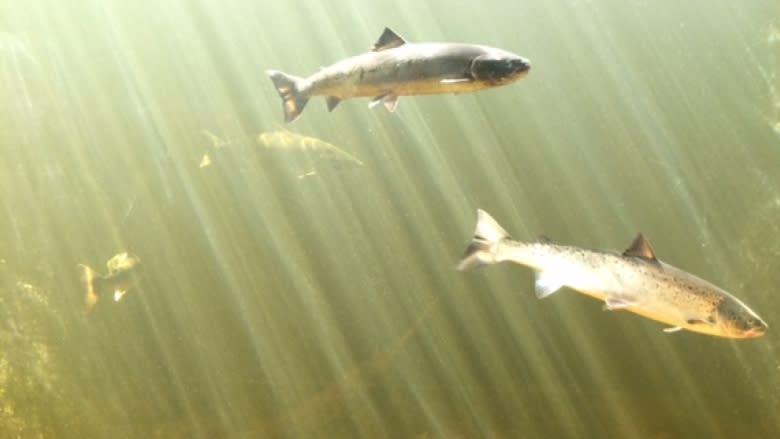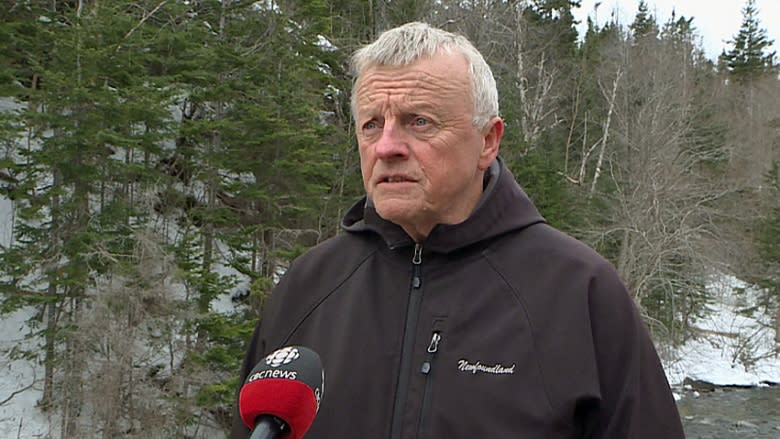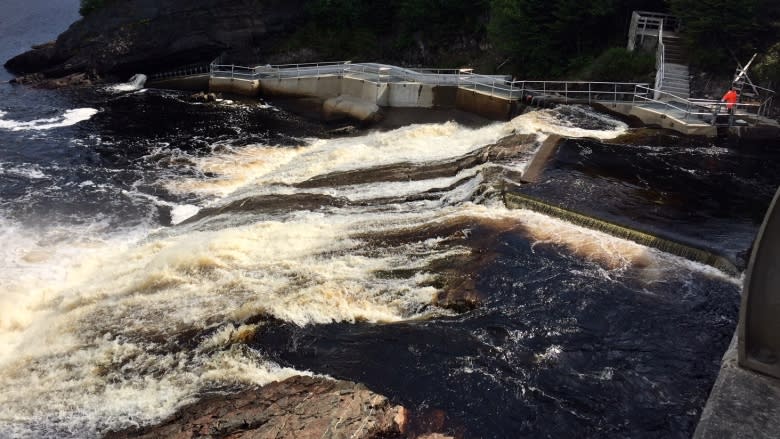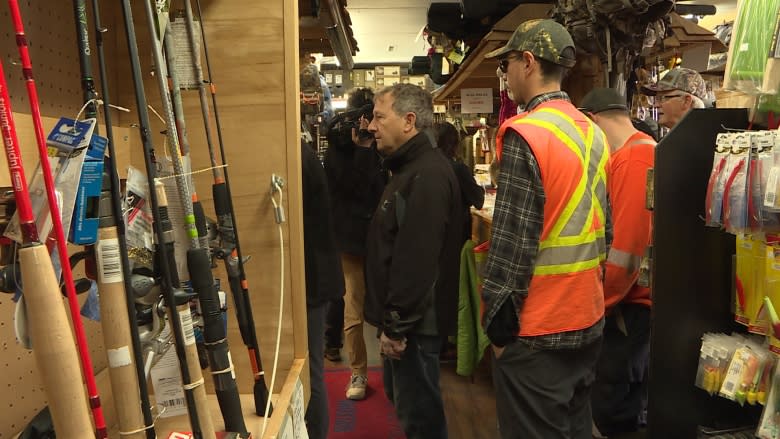'Hard to fault' DFO's salmon angling decision, say conservation groups
The writing was on the wall this salmon angling season, as far as the recent decision to switch to catch and release only for the rest of the Newfoundland season, but there are a number of issues that need to be looked at.
Earlier this week, the Department of Fisheries and Oceans announced as of sundown July 20, the Atlantic salmon angling season will switch to catch and release only. There was a one-salmon retention limit in place prior to the change.
That decision was based on the results of a mid-season review of the stock. In Labrador, a review is scheduled for July 24, so rules there will remain as-is until those results are in.
Provincial Fisheries Minister Gerry Byrne criticised the advice from DFO scientists who recommended the change this season, citing what he's heard from anglers who tell him they're seeing high numbers of salmon.
"I disagree with him [Byrne] vehemently on that," says Christoph Konrad, vice-president of the Salmonid Association of Eastern Newfoundland.
"Word of mouth is certainly important and experienced anglers are an important source of information, however, hard facts cannot be negotiated away. So unless there are extra insights the minister has which we do not have, I think we need to follow the best available science."
Don Ivany, with the Atlantic Salmon Federation, said it's not surprising some anglers are reporting high numbers.
"We understand where DFO is coming from and under the circumstance I think it's better to take a cautionary approach than to have more harvest at this particular time than be sorry for it later on," Ivany told CBC's The Broadcast.
"Based on the science that we have and the anglers that we've talked to as well, the general consensus is that overall salmon stocks are not doing well in the province."
'I believe these numbers'
The Salmon Preservation Association for the Waters of Newfoundland (SPAWN) also says the move to catch and release makes sense.
"It's hard to fault that. I believe these numbers," said John McCarthy, president of SPAWN.
"Like any angler, whether you want to retain or release or do both, you're disappointed. I think we all saw it coming."
Some anglers are indeed seeing good numbers of salmon this season, McCarthy said, but that doesn't mean it's an accurate reflection of the overall population.
"Anglers don't always tell the truth and anglers don't all have the same experience," he told CBC's Corner Brook Morning Show.
"What you see as a novice angler and say are good runs are probably not the same conclusion that an experienced angler would come to, but these reports are from officials that are seeing more in the lakes and things like that."
McCarthy thinks that DFO "absolutely" errs on the side of caution, but that's a better option than anything else.
"We support 100 per cent what DFO has done here."
With the switch to catch and release only, McCarthy guesses the number of anglers on the rivers legally fishing will drop by about half for the rest of the season.
While McCarthy supports DFO's decision to restrict angling rules, he thinks there are a number of larger issues that need to be looked at, since angling isn't the root cause of low salmon returns.
"We have to approach bigger issues and … they're internationally, politically, very hard to address," he said.
"If you look at the river with the biggest decline, it's Conne River, and I don't think it's a coincidence that it's adjacent to a major aquaculture site. And here we are going ahead in Placentia to put another one in."
Seals are the elephants in the room
In addition, McCarthy said the seal population is a big problem for salmon stocks.
"I don't care what kind of angler you are, that needs to be addressed. It's the elephant in the room internationally, but it has to be addressed one way or another.
"You have to be proactive in this, so maybe we need to start to, in some ways, control the number of seals out there, because in reality we have one of the top marine predators out there and we're protecting them. Seals eat — they're not vegetarians."
Catch and release limit for salmon on the island remain at three per day.
Read more articles from CBC Newfoundland and Labrador





